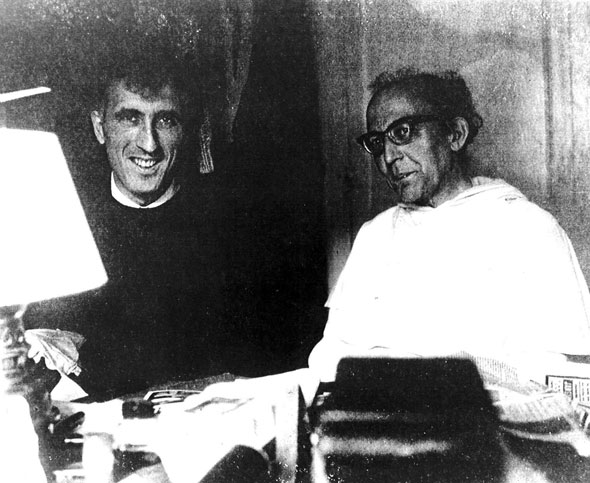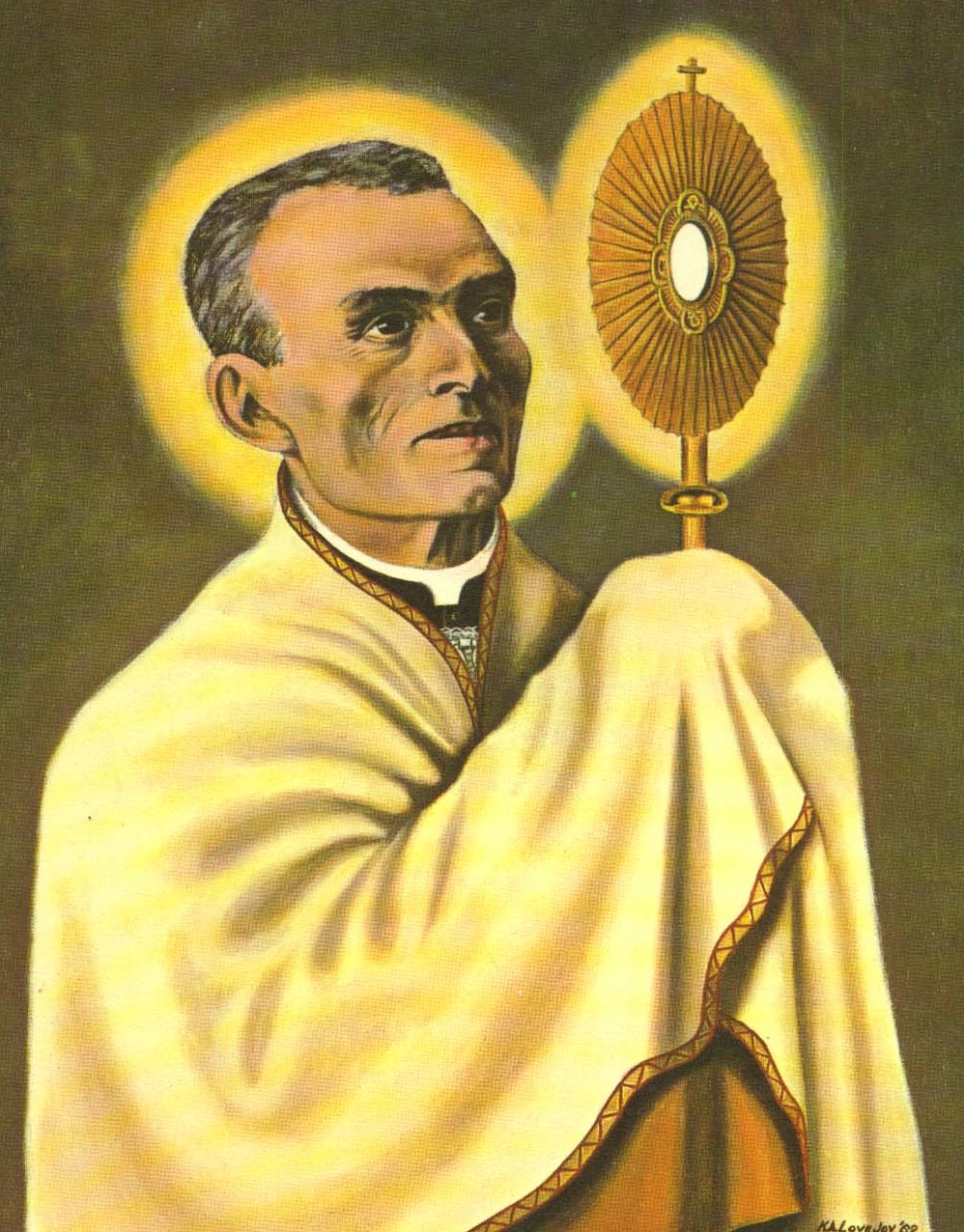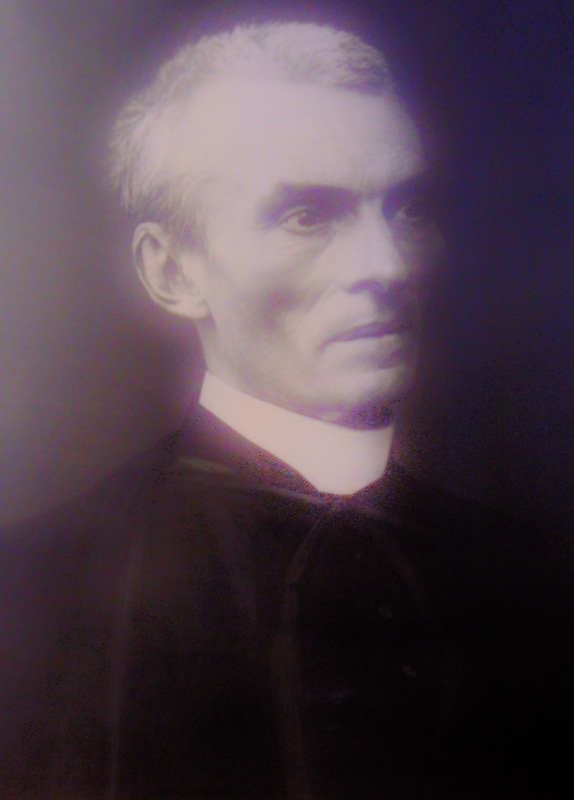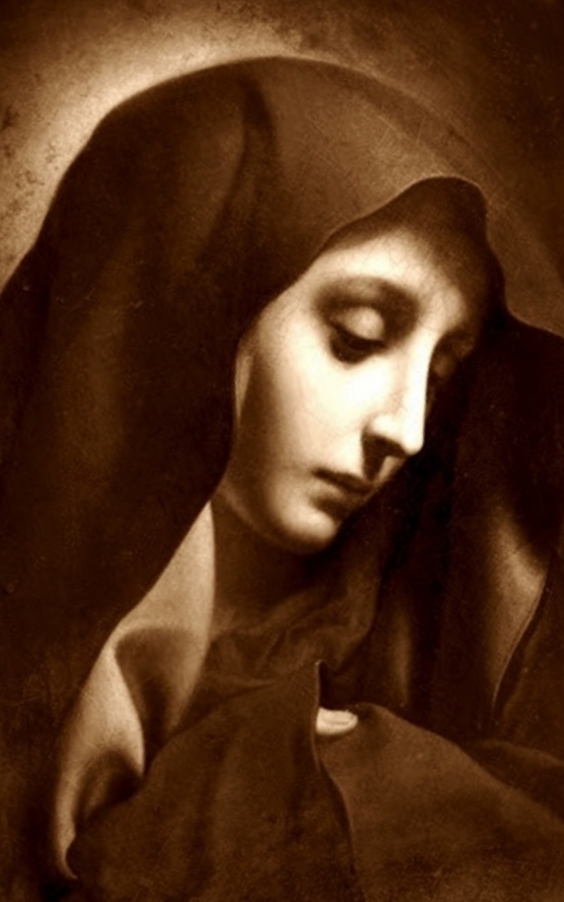I have been listening to ‘Notes From the Underground’ by Fyodor Dostoevsky. A particular passage rose in relevancy, allowing me to laugh uproariously while driving upon the freeway to my new place of employment. Insightfully, the spoken words permitted the light of the Holy Spirit to illuminate a previous state of mind. One that instigated the self-destruction I abusively found myself trapped within. The bottle, coincidently enough vodka, overwhelming not only my life, yet more convincingly my consciousness, able to lay waste to my firm faith, hope, and charity through the perversion of my deepest thought. The core of my being desired God, yet I could not align my worldly life with God. Unification was absurd, as suicide was the true path. Not so funny, penetratingly true, Ann possessed a promising relative who became an intellectual scholar, authoring a book that presented within its title and content the concept of an ‘Underground Man’. His writing wove together an existential premise based upon the works of such writers as Dostoevsky, Kafka, Camus, and Hesse. That was who I was as a young man. As I listened to the ‘Notes From the Underground’, now within a call, alcoholism defeated, the Holy Spirit blessing and kissing, I found the writing humorous. I am convinced Dostoevsky intended the writing to be penetratingly funny. As a young man, it was all so damn serious. Now with the light of the Holy Spirit, illuminating Godly wisdom, I am able to laugh at who I was. Read the words of Dostoevsky, perceiving the hilarity. I will add how natural and easily, I find myself fitting in at the new place of employment; strong in identity, simple, humble in need and expectation. With God secretly grasped within my heart, my mantle of protection provided by the Holy Spirit, Mary still loving, I find no difficulty with my fellow worldly brothers and sisters.
Zverkov walked in at the head of them; evidently he was the leading spirit. He and all of them were laughing; but, seeing me, Zverkov drew himself up a little, walked up to me deliberately with a slight, rather jaunty bend from the waist. He shook hands with me in a friendly, but not over-friendly, fashion, with a sort of circumspect courtesy like that of a General, as though in giving me his hand he were warding off something. I had imagined, on the contrary, that on coming in he would at once break into his habitual thin, shrill laugh and fall to making his insipid jokes and witticisms. I had been preparing for them ever since the previous day, but I had not expected such condescension, such high-official courtesy. So, then, he felt himself ineffably superior to me in every respect! If he only meant to insult me by that high-official tone, it would not matter, I thought–I could pay him back for it one way or another. But what if, in reality, without the least desire to be offensive, that sheepshead had a notion in earnest that he was superior to me and could only look at me in a patronising way? The very supposition made me gasp.
“I was surprised to hear of your desire to join us,” he began, lisping and drawling, which was something new. “You and I seem to have seen nothing of one another. You fight shy of us. You shouldn’t. We are not such terrible people as you think. Well, anyway, I am glad to renew our acquaintance.”
And he turned carelessly to put down his hat on the window.
“Have you been waiting long?” Trudolyubov inquired.
“I arrived at five o’clock as you told me yesterday,” I answered aloud, with an irritability that threatened an explosion.
“Didn’t you let him know that we had changed the hour?” said Trudolyubov to Simonov.
“No, I didn’t. I forgot,” the latter replied, with no sign of regret, and without even apologising to me he went off to order the HORS D’OEUVRE.
“So you’ve been here a whole hour? Oh, poor fellow!” Zverkov cried ironically, for to his notions this was bound to be extremely funny. That rascal Ferfitchkin followed with his nasty little snigger like a puppy yapping. My position struck him, too, as exquisitely ludicrous and embarrassing.
“It isn’t funny at all!” I cried to Ferfitchkin, more and more irritated. “It wasn’t my fault, but other people’s. They neglected to let me know. It was … it was … it was simply absurd.”
“It’s not only absurd, but something else as well,” muttered Trudolyubov, naively taking my part. “You are not hard enough upon it. It was simply rudeness–unintentional, of course. And how could Simonov … h’m!”
“If a trick like that had been played on me,” observed Ferfitchkin, “I should …”
“But you should have ordered something for yourself,” Zverkov interrupted, “or simply asked for dinner without waiting for us.”
“You will allow that I might have done that without your permission,” I rapped out. “If I waited, it was …”
“Let us sit down, gentlemen,” cried Simonov, coming in. “Everything is ready; I can answer for the champagne; it is capitally frozen…. You see, I did not know your address, where was I to look for you?” he suddenly turned to me, but again he seemed to avoid looking at me. Evidently he had something against me. It must have been what happened yesterday.
All sat down; I did the same. It was a round table. Trudolyubov was on my left, Simonov on my right, Zverkov was sitting opposite, Ferfitchkin next to him, between him and Trudolyubov.
“Tell me, are you … in a government office?” Zverkov went on attending to me. Seeing that I was embarrassed he seriously thought that he ought to be friendly to me, and, so to speak, cheer me up.
“Does he want me to throw a bottle at his head?” I thought, in a fury. In my novel surroundings I was unnaturally ready to be irritated.
“In the N—- office,” I answered jerkily, with my eyes on my plate.
“And ha-ave you a go-od berth? I say, what ma-a-de you leave your original job?”
“What ma-a-de me was that I wanted to leave my original job,” I drawled more than he, hardly able to control myself. Ferfitchkin went off into a guffaw. Simonov looked at me ironically. Trudolyubov left off eating and began looking at me with curiosity.
Zverkov winced, but he tried not to notice it.
“And the remuneration?”
“What remuneration?”
“I mean, your sa-a-lary?”
“Why are you cross-examining me?” However, I told him at once what my salary was. I turned horribly red.
“It is not very handsome,” Zverkov observed majestically.
“Yes, you can’t afford to dine at cafes on that,” Ferfitchkin added insolently.
“To my thinking it’s very poor,” Trudolyubov observed gravely.
“And how thin you have grown! How you have changed!” added Zverkov, with a shade of venom in his voice, scanning me and my attire with a sort of insolent compassion.
“Oh, spare his blushes,” cried Ferfitchkin, sniggering.
“My dear sir, allow me to tell you I am not blushing,” I broke out at last; “do you hear? I am dining here, at this cafe, at my own expense, not at other people’s–note that, Mr. Ferfitchkin.”
“Wha-at? Isn’t every one here dining at his own expense? You would seem to be …” Ferfitchkin flew out at me, turning as red as a lobster, and looking me in the face with fury.
“Tha-at,” I answered, feeling I had gone too far, “and I imagine it would be better to talk of something more intelligent.”
“You intend to show off your intelligence, I suppose?”
“Don’t disturb yourself, that would be quite out of place here.”
“Why are you clacking away like that, my good sir, eh? Have you gone out of your wits in your office?”
“Enough, gentlemen, enough!” Zverkov cried, authoritatively.
“How stupid it is!” muttered Simonov.
“It really is stupid. We have met here, a company of friends, for a farewell dinner to a comrade and you carry on an altercation,” said Trudolyubov, rudely addressing himself to me alone. “You invited yourself to join us, so don’t disturb the general harmony.”
“Enough, enough!” cried Zverkov. “Give over, gentlemen, it’s out of place. Better let me tell you how I nearly got married the day before yesterday….”
And then followed a burlesque narrative of how this gentleman had almost been married two days before. There was not a word about the marriage, however, but the story was adorned with generals, colonels and kammer-junkers, while Zverkov almost took the lead among them. It was greeted with approving laughter; Ferfitchkin positively squealed.
No one paid any attention to me, and I sat crushed and humiliated.
“Good Heavens, these are not the people for me!” I thought. “And what a fool I have made of myself before them! I let Ferfitchkin go too far, though. The brutes imagine they are doing me an honour in letting me sit down with them. They don’t understand that it’s an honour to them and not to me! I’ve grown thinner! My clothes! Oh, damn my trousers! Zverkov noticed the yellow stain on the knee as soon as he came in…. But what’s the use! I must get up at once, this very minute, take my hat and simply go without a word … with contempt! And tomorrow I can send a challenge. The scoundrels! As though I cared about the seven roubles. They may think…. Damn it! I don’t care about the seven roubles. I’ll go this minute!”
Of course I remained. I drank sherry and Lafitte by the glassful in my discomfiture. Being unaccustomed to it, I was quickly affected. My annoyance increased as the wine went to my head. I longed all at once to insult them all in a most flagrant manner and then go away. To seize the moment and show what I could do, so that they would say, “He’s clever, though he is absurd,” and … and … in fact, damn them all!
I scanned them all insolently with my drowsy eyes. But they seemed to have forgotten me altogether. They were noisy, vociferous, cheerful. Zverkov was talking all the time. I began listening. Zverkov was talking of some exuberant lady whom he had at last led on to declaring her love (of course, he was lying like a horse), and how he had been helped in this affair by an intimate friend of his, a Prince Kolya, an officer in the hussars, who had three thousand serfs.
“And yet this Kolya, who has three thousand serfs, has not put in an appearance here tonight to see you off,” I cut in suddenly.
For one minute every one was silent. “You are drunk already.” Trudolyubov deigned to notice me at last, glancing contemptuously in my direction. Zverkov, without a word, examined me as though I were an insect. I dropped my eyes. Simonov made haste to fill up the glasses with champagne.
Trudolyubov raised his glass, as did everyone else but me.
“Your health and good luck on the journey!” he cried to Zverkov. “To old times, to our future, hurrah!”
They all tossed off their glasses, and crowded round Zverkov to kiss him. I did not move; my full glass stood untouched before me.
“Why, aren’t you going to drink it?” roared Trudolyubov, losing patience and turning menacingly to me.
“I want to make a speech separately, on my own account … and then I’ll drink it, Mr. Trudolyubov.”
“Spiteful brute!” muttered Simonov. I drew myself up in my chair and feverishly seized my glass, prepared for something extraordinary, though I did not know myself precisely what I was going to say.
“SILENCE!” cried Ferfitchkin. “Now for a display of wit!”
Zverkov waited very gravely, knowing what was coming.
“Mr. Lieutenant Zverkov,” I began, “let me tell you that I hate phrases, phrasemongers and men in corsets … that’s the first point, and there is a second one to follow it.”
There was a general stir.
“The second point is: I hate ribaldry and ribald talkers. Especially ribald talkers! The third point: I love justice, truth and honesty.” I went on almost mechanically, for I was beginning to shiver with horror myself and had no idea how I came to be talking like this. “I love thought, Monsieur Zverkov; I love true comradeship, on an equal footing and not … H’m … I love … But, however, why not? I will drink your health, too, Mr. Zverkov. Seduce the Circassian girls, shoot the enemies of the fatherland and … and … to your health, Monsieur Zverkov!”
Zverkov got up from his seat, bowed to me and said:
“I am very much obliged to you.” He was frightfully offended and turned pale.
“Damn the fellow!” roared Trudolyubov, bringing his fist down on the table.
“Well, he wants a punch in the face for that,” squealed Ferfitchkin.
“We ought to turn him out,” muttered Simonov.
“Not a word, gentlemen, not a movement!” cried Zverkov solemnly, checking the general indignation. “I thank you all, but I can show him for myself how much value I attach to his words.”
“Mr. Ferfitchkin, you will give me satisfaction tomorrow for your words just now!” I said aloud, turning with dignity to Ferfitchkin.
“A duel, you mean? Certainly,” he answered. But probably I was so ridiculous as I challenged him and it was so out of keeping with my appearance that everyone including Ferfitchkin was prostrate with laughter.
“Yes, let him alone, of course! He is quite drunk,” Trudolyubov said with disgust.
“I shall never forgive myself for letting him join us,” Simonov muttered again.
“Now is the time to throw a bottle at their heads,” I thought to myself. I picked up the bottle … and filled my glass…. “No, I’d better sit on to the end,” I went on thinking; “you would be pleased, my friends, if I went away. Nothing will induce me to go. I’ll go on sitting here and drinking to the end, on purpose, as a sign that I don’t think of you the slightest consequence. I will go on sitting and drinking, because this is a public-house and I paid my entrance money. I’ll sit here and drink, for I look upon you as so many pawns, as inanimate pawns. I’ll sit here and drink … and sing if I want to, yes, sing, for I have the right to … to sing … H’m!”
But I did not sing. I simply tried not to look at any of them. I assumed most unconcerned attitudes and waited with impatience for them to speak FIRST. But alas, they did not address me! And oh, how I wished, how I wished at that moment to be reconciled to them! It struck eight, at last nine. They moved from the table to the sofa. Zverkov stretched himself on a lounge and put one foot on a round table. Wine was brought there. He did, as a fact, order three bottles on his own account. I, of course, was not invited to join them. They all sat round him on the sofa. They listened to him, almost with reverence. It was evident that they were fond of him. “What for? What for?” I wondered. From time to time they were moved to drunken enthusiasm and kissed each other. They talked of the Caucasus, of the nature of true passion, of snug berths in the service, of the income of an hussar called Podharzhevsky, whom none of them knew personally, and rejoiced in the largeness of it, of the extraordinary grace and beauty of a Princess D., whom none of them had ever seen; then it came to Shakespeare’s being immortal.






Recent Comments